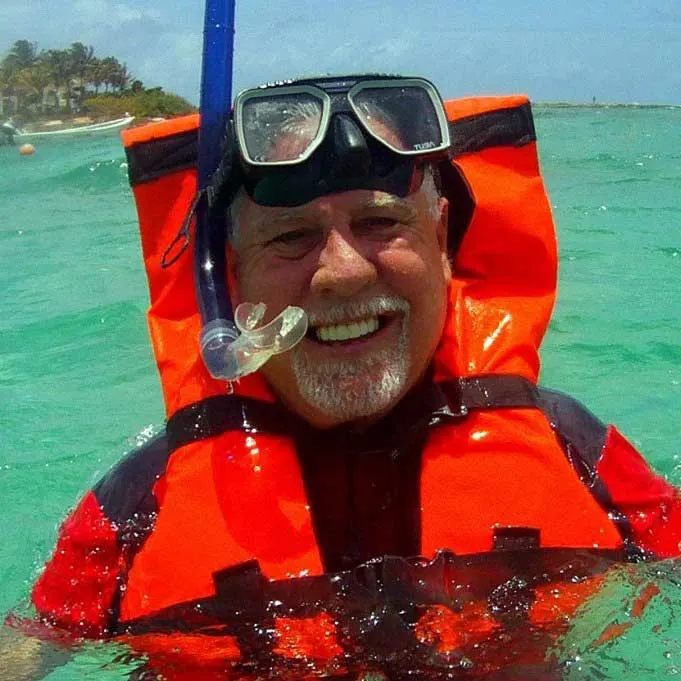Jessica Ramesch - IL Panama Editor

What were your biggest obstacles?
Assimilating to a new culture is fun and exciting, but it also takes some work. Not everyone talks about that, and it’s important to be both aware and willing to put that work in. To view it as a fun challenge that will enrich your life beyond measure.
I grew up in Eugene, Oregon, and when I was a teen my family moved to India for just over a year. The culture shock was major. I didn’t speak Hindi—had never even been exposed to it or even learned a few words prior to the trip.
There’s a common misperception that everyone in the country speaks English, as it’s one of the national languages, but your average working class local does not…at least, that wasn’t the case when I was in New Delhi in late 1988. If I was taking a rickshaw, auto-rickshaw or taxi…going to the corner store…ordering at a local eatery...I needed to communicate in the local language. We were always discussing prices, so I needed to learn the numbers quickly. It was all so very foreign and complicated.
But it was also fantastically fun. Once I had learned some basics, I was better able to enjoy everything from local music and movies to the amazing food. I’ve had a love affair with Indian food ever since. I’ve spent many a happy day trying out new recipes or seeking out Indian restaurants in different cities around the world.
I got teased a lot—apparently, my Hindi accent is hilarious—but it was good-natured ribbing. I learned to laugh at myself. The biggest lesson was: Never be afraid to try something new. It served me well when I moved to Panama and started anew.
What would you love to have known before you decided to move overseas?
I wish I had known about the three stages of expat living. There’s typically a honeymoon period, when you’re excited about the move and not really thinking about the work it’ll take to assimilate, learn the language, and get your household set up. Most expats move from the honeymoon phase into a “what on earth am I doing here?” phase. You question your sanity and consider throwing in the towel.
But then you finish with the early move stuff. Applying for a local driver’s license, getting utilities set up—these are things that can really try your patience in a foreign country. One that’s done, you can enter the “feeling settled” phase.
That’s when things get really good.
You’ve made a few friends and your social life is better than it was before. (Expat communities are amazingly friendly and helpful.) You’ve started learning the language and are able to interact with locals…immerse yourself in local culture…feel at ease and proud of yourself for making the move.
This is when I see expats shine, especially in Panama, where I’ve lived since 2005. They have a blast, taking salsa lessons…joining local interest groups…exploring the country...or just enjoying outdoor activities in the near-perennial sunshine. They participate in local charities or create new ones. They have fuller lives than they could have imagined.
Any first step tips?
1. Be very patient and forgiving…with yourself as well as with local people.
2. Don’t try to do too much in one day or week. When you get something done, pat yourself on the back or find some small way to celebrate.
3. If you aren’t already fluent, learn at least the words for “please,” “thank you,” and “excuse me,” so locals can see that you’re trying. Continue taking classes/learning.
4. Do be polite and don’t show impatience. No matter what.
5. Take advantage of your local expat community.
This is an important one. Remember, there’s nothing wrong with getting homesick. When that happens, use your expat community. Sometimes new arrivals will shun other expats, insisting that they want to live like and amongst locals. It comes from a good place—it’s great to respect the local culture. And you should never expect your new overseas destination to be just like home. But it’s only natural to miss some things about home. A strong expat community can help with that.
You may just need to commiserate from time to time about the challenges of life overseas. (Seek out people who are mostly happy but able to genuinely commiserate. And avoid anyone who does nothing but complain…that’s a recipe for disaster.) You may just want to know where to buy the fixings for a traditional Thanksgiving dinner, so you can keep some of your old traditions even as you learn new ones. Expats who’ve been around longer than you have a wealth of helpful info to share…recommendations on local services, doctors or lawyers…tips on getting hard-to-find items…and the list goes on.
So don’t be afraid to get involved in the expat community. More often than not, it’ll help you be a “good expat” who interacts well with locals.
That’s all you really need. With these little tips, you’ll get better service and treatment everywhere you go. People will be more willing to take the extra time or go the extra mile needed to solve any dilemma. You’ll make more friends and your transition will go smoothly.
Jim Santos - IL Contributor

What were your biggest obstacles?
I think most expats who settle on countries where English is not the primary language would agree that communication is the number one obstacle. It is easier than you may think to get along after you are established, but in those initial few months when you are dealing with things like opening a bank account, setting up utilities and internet, and learning to get around in the buses and cabs, things can get a little frustrating. On the other hand, learning to speak another language has also been one of the greatest rewards for me in my time in Ecuador.
What would you love to have known before you decided to move overseas?
We did a lot of planning before our move, so other than wishing I knew more Spanish, we were pretty well prepared. I think what came as a surprise to us though was that once you get past all the excitement and stress of taking that first step, it is really not that big a deal living in another country. It is amazing how quickly you can come to feel at home. In fact, it has opened up a world of travel to us, as we’ve started to enjoy visiting other South American countries. Going from country to country now feels not much different from traveling between States in the US.
Any first step tips?
Research, research, research. International Living is, of course, a great resource for helping you to narrow down your search, and then get more information about your chosen location. Once you have a city or region in mind, do Google searches and learn what you can about the area and the people. Searches on YouTube will give you an advanced look at your new home. There are also now a lot of Facebook expat groups covering a variety of expat destinations. Signing up to join one gives you some boots on the ground information, and another resource to ask questions once you arrive.
Laura Diffendal - IL Belize Correspondent

What were your biggest obstacles?
My biggest obstacle to moving overseas were family ties and owning my own business with partners, and the very act of sitting down and telling family and friends I was leaving was by far my biggest block. Second to that was the mental shift of feeling I had to have a US cell number, physical address, etc- I couldn't fathom how one gets by without those things, didn't know it was possible.
What would you love to have known before you decided to move overseas?
I'd have loved to have known that all the things I really stressed and worried about mean nothing now, five years later. What if I want my house back, what if I need a car back home, what if I regret leaving my business, what if this doesn't work out, what if they won't let my dog in the country, what if I hate it, what if I'm homesick, what if etc. You tend to get a bit of egocentrism and feel like you are alone/the only one that ever did this, that the other country is going to somehow target you and your paperwork and find problems with it - really everything about moving is manageable, with a little patience and perseverance, the hardships and nightmares you hear about are such a tiny percentage of the reality.
Any first step tips?
Keep checklists so your brain doesn't become overwhelmed by the many tasks.
Find a great online group in your country you are moving to, like on Facebook, to connect to—everything has been done before and many fears can be quelled (for free, by nice people) by simply reaching out.
Jason Holland - IL Roving Latin America Editor

What were your biggest obstacles?
I think the biggest adjustment was learning new "systems" for basically everything: paying an electric bill, dealing with government offices, going to the bank, customs and ways of doing things... it's similar to the U.S. but different enough that there were definitely some embarrassing and frustrating moments.
What would you love to have known before you decided to move overseas?
How important your network of neighbors, local friends, and fellow expats will be to help you adjust in the beginning and throughout your time living abroad.
In the U.S. we often have a small circle of friends. Perhaps know our neighbors, often not. Overseas you need help figuring things out, navigating a new culture and language, and all the rest. When something breaks in your home you have no idea who to call... when you need a specialist doctor who has no idea where to find one... you might be confused by many things in your new expat life. Or you might have an accident, emergency, or crisis.
In those times, you have people you can call and depend on. You have a whole network of people you can go to for questions.
Any first step tips?
I think too many people spend too much time researching all the details about a specific place, obsessing over the nitty-gritty. Research is important, of course. But you won't ever really know if a place is right for you until you actually go. My top suggestion is to do an extending scouting trip to each location you're interested in. From that come up with a select few you really liked and plan to stay for six months or more to try out life there. That'll teach you so much about a place. This is essential to finding your sweet spot.
Don Murray - IL Riviera Maya Correspondent

What were your biggest obstacles?
Learning a new language has been a challenge. But we are on our 6th year now and have become functional in Spanish. Our rule is to speak only Spanish outside the house, even if the local person we are speaking with is speaking English. We all understand we are practicing our second languages and chuckle.
What would you love to have known before you decided to move overseas?
There are a thousand things I wish I had known but the truth is, you simply cannot know it all. You must learn through your experiences. I suppose, if pressed, I would have to say I should have brought more clothing. As a big guy, more than six feet and over 200 pounds, clothing and shoes are nearly impossible to find in Latin America.
Any first step tips?
Yes. Shed your brand loyalties. Even if you can find your favorite hygiene products and food items, they will cost significantly more in your new home country, than local products. About 3-4 months before leaving the states, stop buying your favorite brands. Purchase and consume alternate brands of everything. Coffee, peanut butter, deodorant, laundry detergent...all those items that Madison Avenue has worked so hard to sway you towards over the decades...forget them. Local products, wherever you are are usually quite good or better and significantly reduced cost.
Related Articles
The World’s Best Places to Retire in 2018
